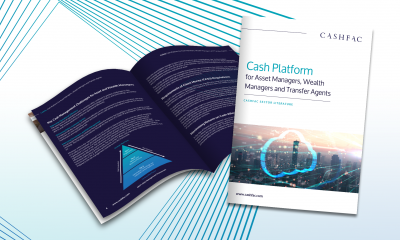The FCA consultation on “Coronavirus and safeguarding customers’ funds: proposed guidance for payment firms”
James McGivern, Head of NBFI at Cashfac discusses 6 key takeaways from the FCA’s proposed guidance on safeguarding customer funds for eMoney and Payment Service Institutions.
The FCA seems to finally be bringing eMoney and payment services regulations up to the same standard of protection afforded to the clients of asset managers under CASS 7. They issued a hasty consultation document on the subject on 22nd May 2020 and is requiring responses by 5th June 2020 – a mere nine working days later.
Why the haste? Last July it sent a “Dear CEO” letter to eMoney (EMI) and Payment Service institutions (PSI) warning of the perceived weakness in the protection of segregated cash. Now facing into the jaws of the expected recession caused by the Coronavirus, the regulator has decided to spring into action. The FCA seem to be applying the “firms must be ready for their liquidation” standard that it prescribed and, crucially, enforced with huge fines on the asset management community during the last recession over a decade ago.
EMIs and PSIs should beware this change in the FCA’s mindset. When the same thing happened with the segregation rules for asset managers, their CASS regulations did not actually change that much but the ferocity with which they were enforced did.
The guidance for EMIs and PSIs is also not changing that much. The new rules are issued on a temporary basis but are almost certain to be made permanent. I will not go through all the guidance, you will find it on the FCA website if you want to read the entire document, but I will draw out six of the more important points for EMIs and PSI if they want to meet the “new” required standard.
1) Keeping records and accounts and making reconciliations
Record keeping must now be good enough that any third party, such as an insolvency practitioner (IP) or the FCA can clearly identify and return client’s cash to them. This is a much higher standard than maintaining records that your skilled and experienced staff may currently find sufficient to control segregated funds. Byzantine brilliance will not be acceptable.
Internal and external reconciliations must be carried out on an, at least, daily basis so that if the firm becomes insolvent, reconciliation breaks can be easily resolved by inexperienced third parties. The regulator seems to be saying here that intraday reconciliation is really required. This is a significant increase in the regulatory burden.
If a regulated firm is in breach of these requirements, then it must inform the FCA promptly. In the FCA’s eyes, a failure to report is a very significant failure even if the initial item to be reported is relatively insignificant.
2) Safeguarding accounts and acknowledgement letters
The bank account that safeguarded funds are held in must be clearly designated with the word ‘safeguarding’ or ‘client’ in its title and/or a trust letter must be in place with the bank confirming the account’s designation. The FCA now provides a template for this letter, which is similar to that for CASS 7, that outline the status of the bank/custodial account. Presumably, if the regulated firm already has their own trust letters in place, they will now have to repaper these accounts.
3) Selecting, appointing, and reviewing third parties
The eMoney or Payment Services Institution should be reviewing the banks and custodians it is using at least once a year to ensure they are still safe places to deposit clients’ money. Although there does not seem to be any new requirements for diversification of segregated funds.
4) When the safeguarding obligation starts
The FCA gives some specific advice on the identification, allocation and use of customer funds. The importance of this point might be easy to miss if you are not well versed in clearance and settlement practices. It is requiring the EMI/PSI to only use a customer’s funds to settle his/her transactions. This is harder than it sounds if client money is in one fungible pooled bank account. To get this right requires a raft of controls over cash movement beyond mere reconciliation. Without these, the cardinal sin of the co-mingling of firm and clients’ money is inevitable.
5) Unallocated funds
The FCA requires firms to ringfence and protect money received even if it cannot identify the owner either through client or firm error or design, such as with low value anonymous gift cards.
6) Wind-down plans
The regulated firm is now required to have a plan in place for an orderly wind down of its operations in the event of insolvency. This includes the requirement to document “information which would help an administrator or liquidator to quickly identify customer funds and return them as a priority”. In other words, a “Resolution Pack” such as what CASS 7 firms have been required to prepare for the last several years.
Learn more
For eMoney and Payment Service institutions dealing with the effects of Coronavirus, trying to improve their products and trying to grow their business, this is all a mighty challenge. If your firm is struggling, perhaps we can help. Cashfac offers a complete administration/back office solution for EMIs/PSIs to help you control segregated and firm money and deliver full compliance with the new regulations. For information, please contact us using the below form.


